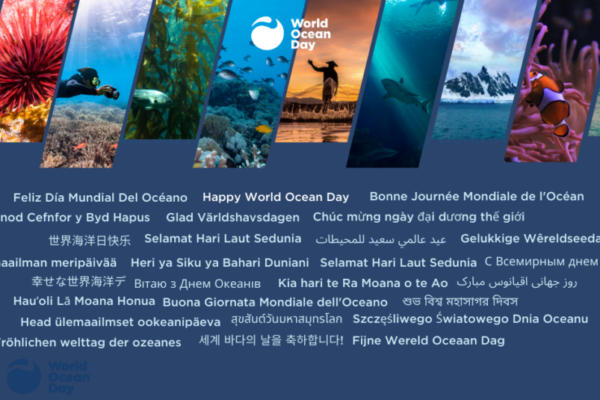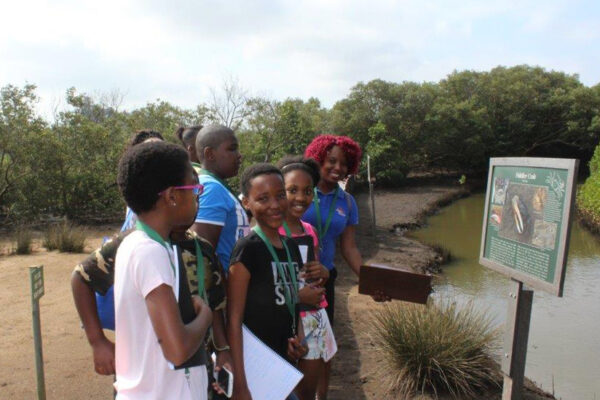As referenced in this blog post, The Ocean Project recently launched “Making Conservation Happen,” a new webinar series aimed at helping aquariums and zoos engage strategically, safely, and effectively in conservation policy.
Session 1: April 13 at 1:00pm Eastern/10:00am Pacific
Session 2: May 4 at the same time
Registration is now open! For more information on the series click here. To join the webinar on April 13 click here.
Earlier this month, I posted my first blog about the Making Conservation Happen Brown Bag Webinar Series that The Ocean Project is organizing, with first two on April 13 and May 4. I reviewed how a lot of bad things are happening here in DC, then made the case that by engaging on public policy issues, aquariums, zoos, and museums can be a force for good. (In case you missed it: Click here.)
The second blog post discussed what motivates politicians, including what people can do for them and what people can do to them. I made the point that aquariums, zoos and museums are in the “what we can do for them” business because of our missions and, more important, the number of their constituents who annually visit us. (In case you missed this one too: Click here.)
When I sat down to write this blog I thought I would seamlessly tie the two together and then…writer’s block set in. But this morning I was saved when a colleague shared Colleen Dilenschneider’s most recent Know Your Own Bone blog that included the question, “Should museums be activists?” This career conservation policy nerd paused and screamed “hell yeah” from my empty home office and my dogs started barking like the UPS truck was parked outside.
After the dogs settled down I kept reading when one of my favorite things happened, an author provided a great answer to the question they asked. More than an answer, Dilenschneider provided sound advice: “In short, perhaps cultural organizations need not – and, indeed, should not – be ‘political’ for the sake of being so, but they may benefit by supporting their missions and understanding their potential influence as sites visited by those who also have a propensity to visit the ballot box. Knowing that recent visitors are more likely to be active and enthusiastic voters can help organizations find ways to carry out their missions more broadly.” (Read the full post here.)
Because Know Your Own Bone is data driven, Dilenschneider provided research from IMPACTS, a longtime collaborator with The Ocean Project, where she is the Chief Market Engagement Officer for Research & Development.
| · 87.4% of eligible people who visited any cultural organization within the last year self-reported that they are registered to vote; compared to 74.3% of eligible voters who have not recently visited a cultural institution.
· About 70% of people who have visited a cultural entity in the last year report having voted in 2016; compared to the 58% of eligible voters who went to the polls in 2016. · Data suggests that a person who has visited a cultural organization in the last year is 62.5% more likely to vote in the 2018 midterm elections than a person who has not in the same period. · A little more than 75% view aquariums, zoos, and museums as trusted and credible sources of information; a figure that is at least 10 percentage points higher than other NGOs, state and federal agencies or newspapers. · Less than 50% view aquariums, zoos, and museums as having a “political agenda”; a figure that is at least 10 percentage points lower than other NGOs, state and federal agencies or newspapers. |
These statistics confirmed several things I have come to know since becoming part of this community in 2004: Aquariums and zoos are valued and trusted community institutions and the people that visit them want to have fun with family and friends – and bonus points for you if they learn and/or retain information you provide about the needs of the animals you care for and their wild relatives. But what I learned made perfect sense – your guests take their civic responsibility to vote more seriously than your non-guests. Anyone that is arguing that aquariums, zoos, and museums should transform themselves into the next Sierra Club should not be taken seriously. But this presents an opportunity that can be seized if you properly assess the rewards and risks of engaging.
Our Making Conservation Happen Brown Bag Webinar series is designed to help you better understand how conservation laws and policies are made, what influences those decisions, the tools that aquariums, zoos, and museums have in their advocacy and engagement toolbox should they choose to become more active, and the steps you can take to evaluate whether or not engaging on an issue could damage (or enhance) your brand.
Please return to the top of the page to register for the Making Conservation Happen webinars.




